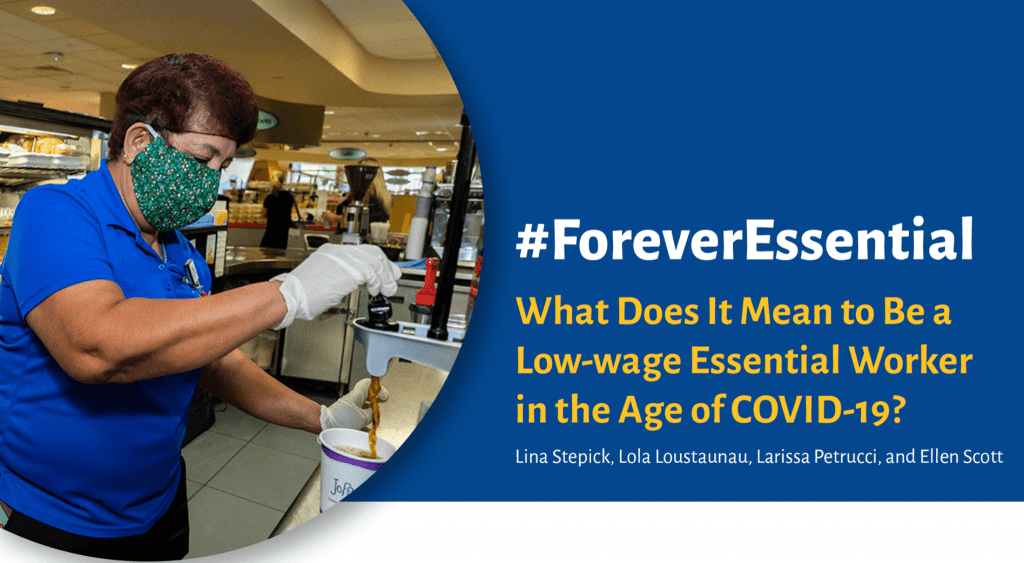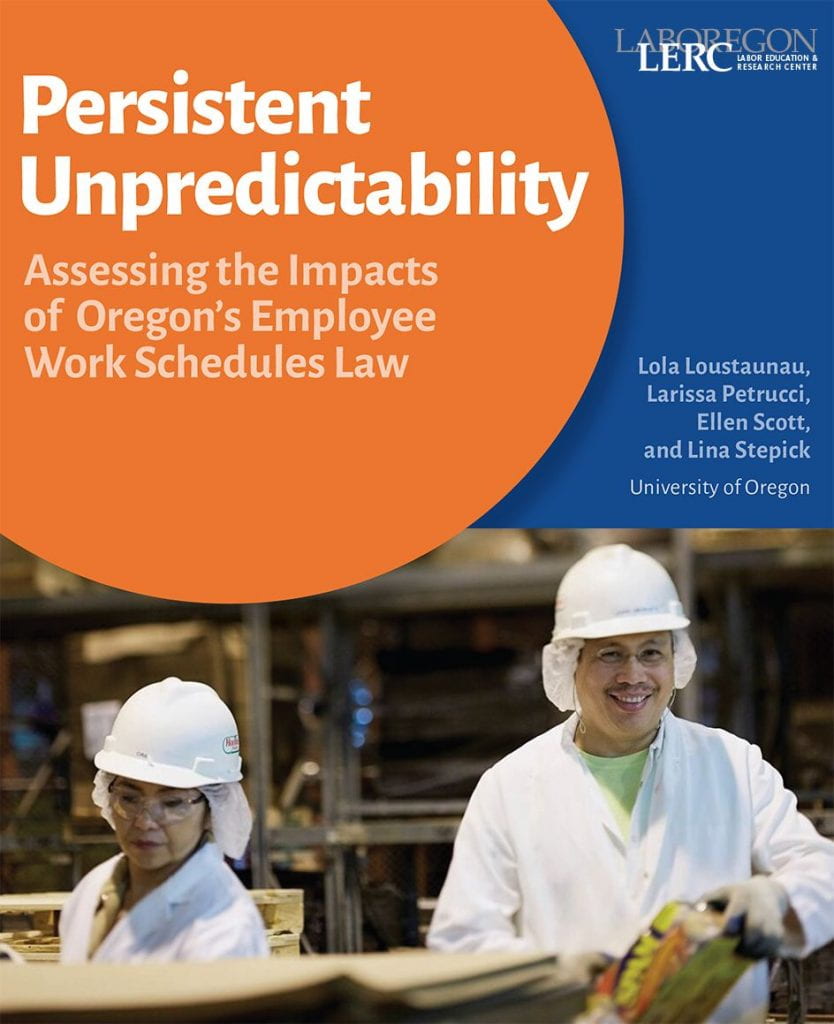A new LERC and UO Sociology study on the impacts of the first statewide Fair Workweek law reveals “Persistent Unpredictability” in Oregon retail, food services, and hospitality workers’ schedules, as employers find ways to continue changing workers’ schedules at the last minute and avoid predictability pay obligations.
While the law is a first step in addressing unstable scheduling practices and increases advance notice and ensures workers have the right to rest between shifts, certain provisions, such as the voluntary standby list, leave room for improvement.
This study also reveals the need for adequate funding for BOLI as more robust resources for education and enforcement are necessary. For more see full report here: Persistent Unpredictability: Assessing the Impacts of Oregon’s Employee Work Schedules Law

In a follow up study to the “Predictable Unpredictability: Assessing the Impacts of Oregon’s Employee Work Schedules Law” LERC and UO Sociology researchers conducted 52 in-depth interviews with Oregon retail, food services, and hospitality workers about what it means to be an essential worker in the service sector under COVID-19. This study reveals that workers have no choice but to be essential and continue working despite facing new physical and emotional hazards in their workplaces. See the brief here.

